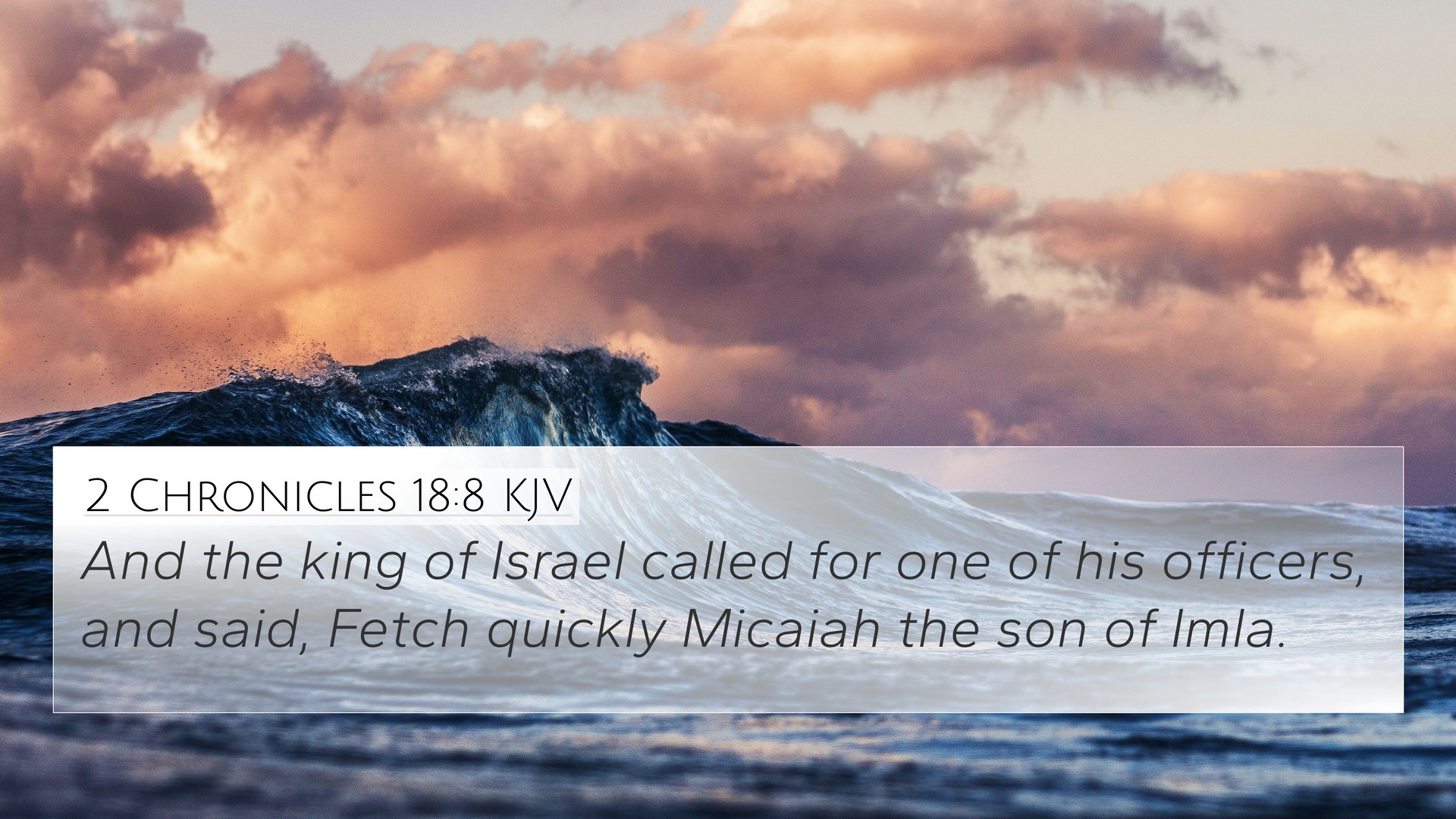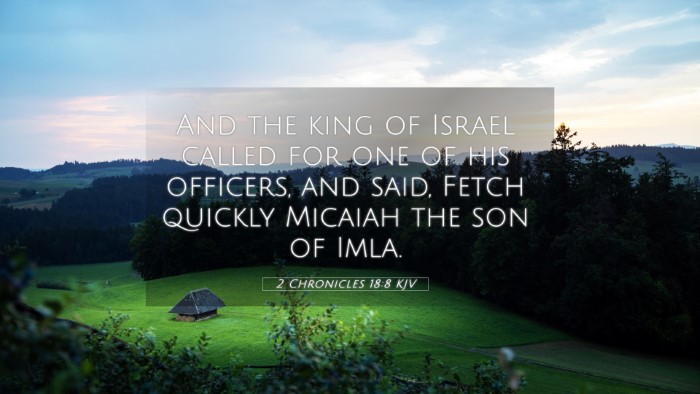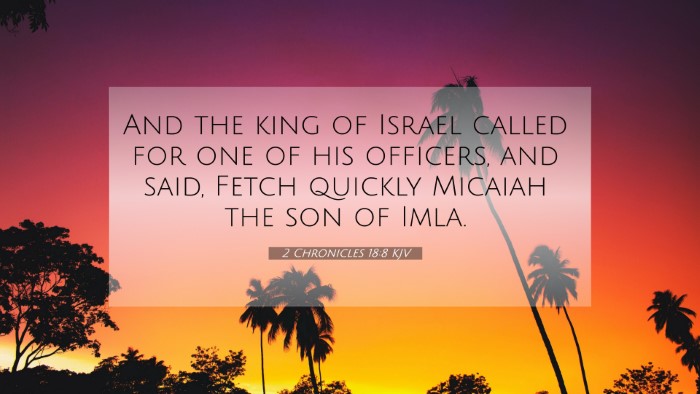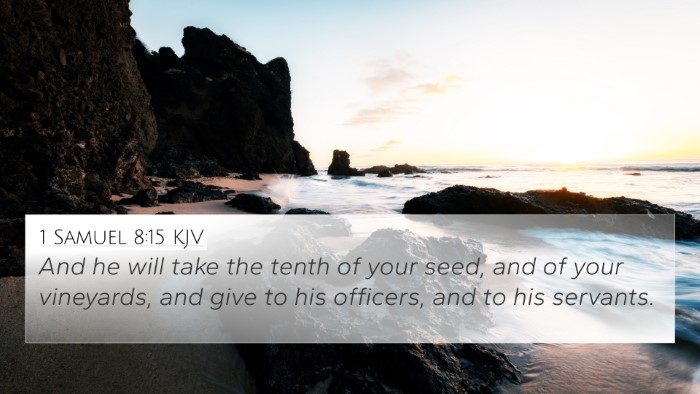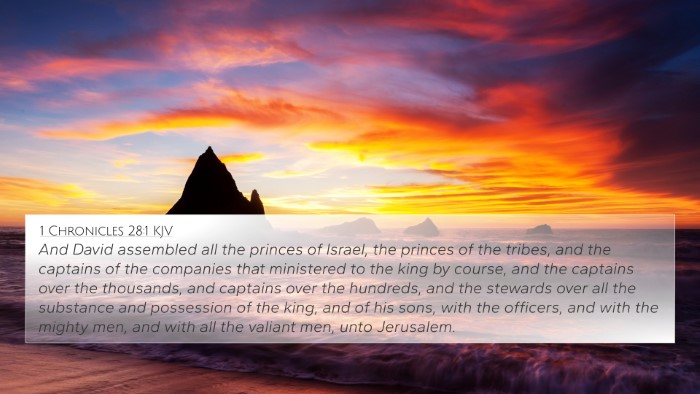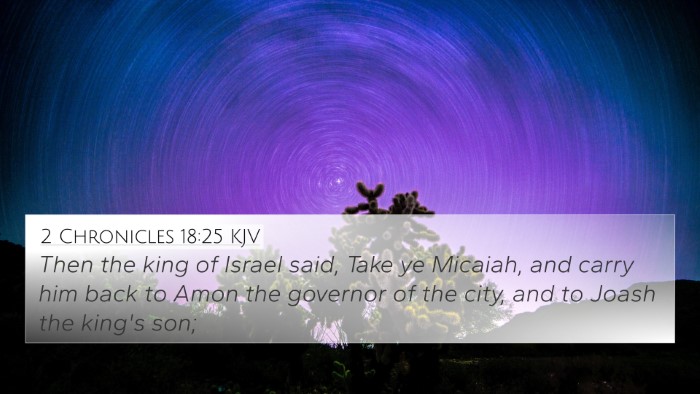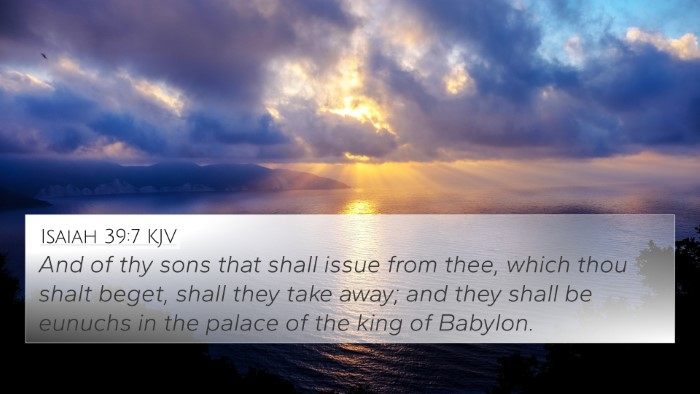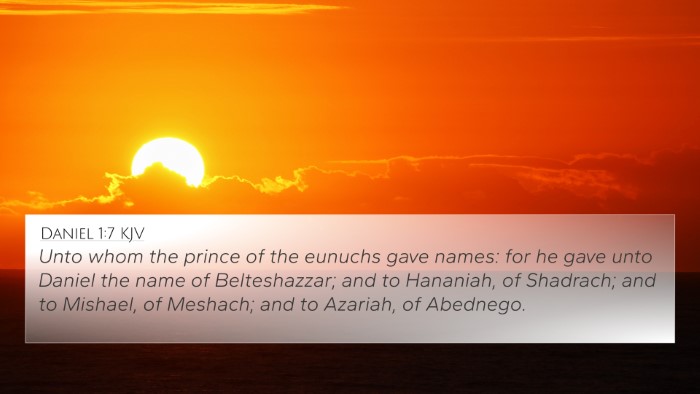Understanding 2 Chronicles 18:8
2 Chronicles 18:8 states: "So the king of Israel called an officer and said, 'Bring Micaiah the son of Imlah.'"
This verse occurs in the context of the narrative regarding King Ahab's alliance with King Jehoshaphat of Judah. Ahab seeks the counsel of the prophets regarding a military campaign against Ramoth-gilead. However, all the prophets present favorable messages, reflecting Ahab's desire for a positive outcome. Jehoshaphat's insistence on hearing from a true prophet of the Lord leads to the call for Micaiah.
Analysis and Commentary
- Matthew Henry: He emphasizes the contrast between the false prophets, who speak what the king desires to hear, and Micaiah, who speaks the truth of God. This highlights the importance of discernment in seeking spiritual counsel.
- Albert Barnes: He notes that this moment encapsulates the tension between human desire and divine truth. Ahab’s willingness to listen to only favorable messages serves as a warning against selective hearing in matters of faith.
- Adam Clarke: Clarke discusses Micaiah's role as a true prophet. His integrity in delivering God's message, even in the face of hostility, exemplifies the cost of standing by truth.
Thematic Connections
This verse connects with various themes within the Bible regarding prophecy, truth, and kingly authority.
- Prophetic Integrity: Micaiah's narrative parallels instances throughout scripture where true prophets confront rulers, such as Nathan with David (2 Samuel 12:1-15) and Jeremiah's warnings to various kings.
- Divine Guidance: This verse reflects the Biblical theme of seeking God's will, akin to James 1:5, which encourages believers to ask God for wisdom in decision-making.
- Conditional Prophecy: The idea that prophets deliver messages that can change based on the king's actions can be linked with Jonah’s prophetic message to Nineveh (Jonah 3:4).
Cross-Referencing Biblical Texts
To fully grasp the significance of 2 Chronicles 18:8, several key cross-references provide valuable insights:
- 1 Kings 22:8: A parallel passage recounts the same event and gives further detail about the prophets’ unanimous yet misleading messages.
- 1 Kings 22:10: Here, the scene is set with Ahab and Jehoshaphat in their royal attire, showcasing their authority contrasted with the unveiled truth brought by Micaiah.
- 2 Chronicles 18:7: Jehoshaphat seeks a prophet of the Lord, indicating the need for divine wisdom in leadership.
- Jeremiah 23:16-17: This passage warns against false prophets, drawing a stark line between true and deceitful messages in the name of God.
- Micah 3:5: Reflects on the behavior of false prophets who lead God’s people astray, paralleling the false assurance given to Ahab.
- Ezekiel 14:9: Addresses the dangers of hearing false prophecies, linking to the consequences of Ahab's choices.
- Matthew 7:15: Jesus warns about false prophets in sheep's clothing, reiterating the need for vigilance and discernment in spiritual matters.
Practical Applications and Lessons
The exploration of 2 Chronicles 18:8 leads us to consider several key takeaways:
- Seek Truth: Just as Jehoshaphat sought a true prophet, believers are encouraged to seek out genuine guidance in their spiritual journey.
- Discernment: The need for discernment is vital. Not every message that is pleasing is true. Believers must weigh counsel against Scripture.
- Courage in Faith: Micaiah's willingness to stand alone in the face of opposition challenges us to be steadfast in delivering God's truth.
- Relying on God: In decision-making, reliance on God through prayer and seeking His wisdom is paramount and can prevent the pitfalls of our desires.
Conclusion
In summation, 2 Chronicles 18:8 serves as a pivotal verse within the narrative of Ahab and Jehoshaphat, shedding light on the kingdom's spiritual condition and the crucial role of prophecy. It encourages a deeper appreciation for the intertwining of truth and authority in striving for righteous leadership.
